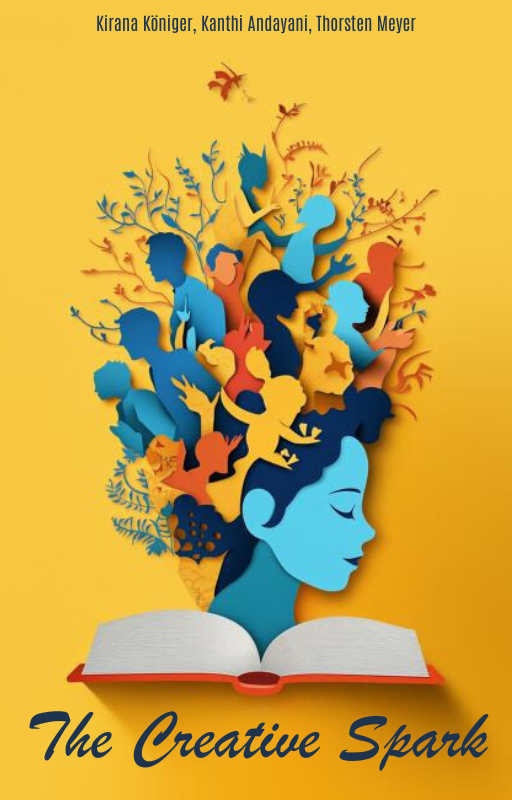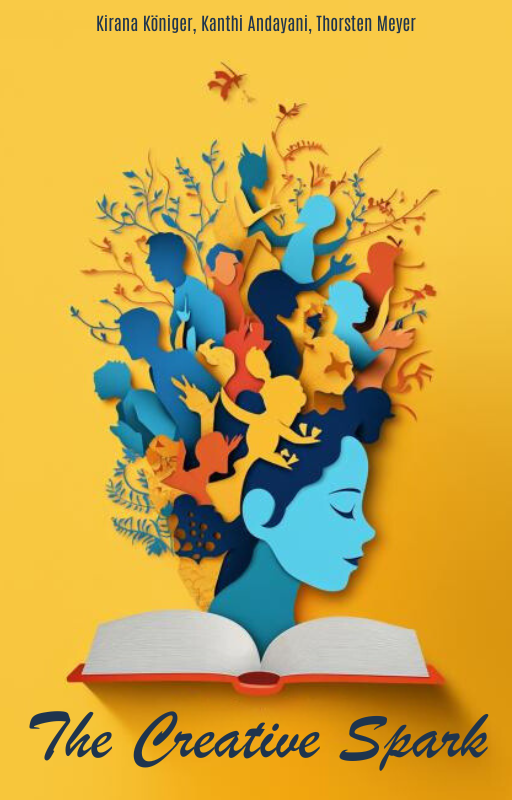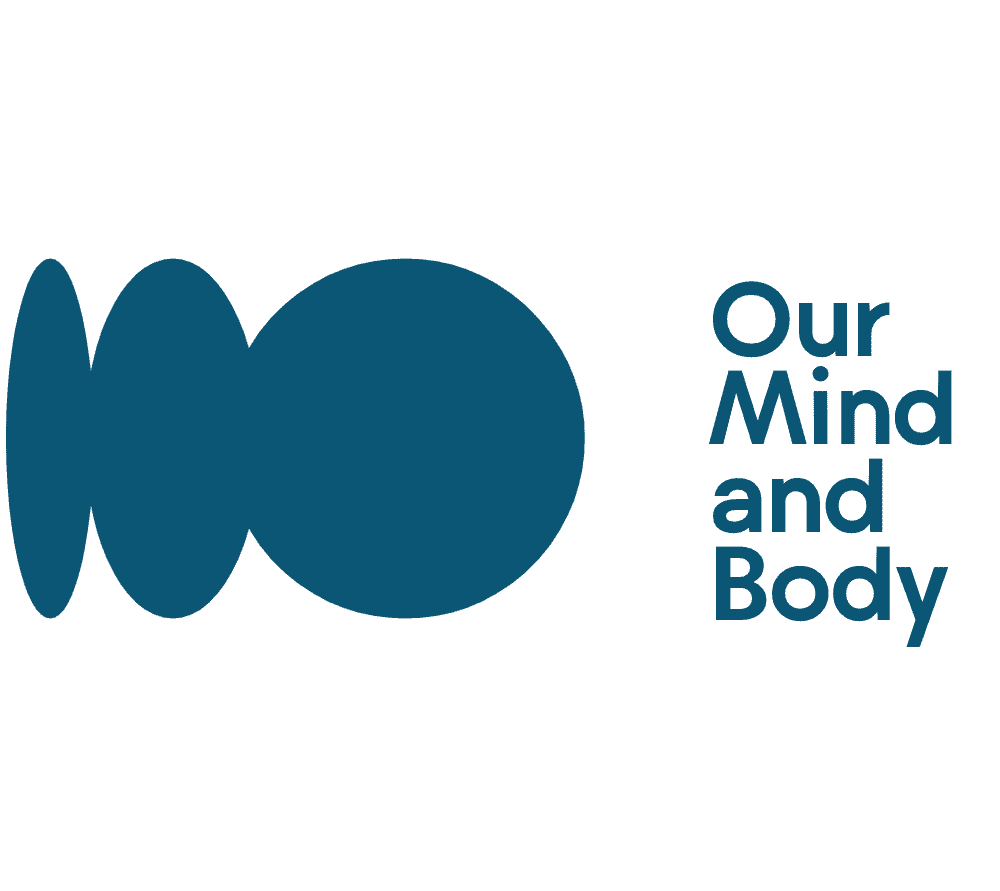Personal Growth
Unlocking Personal Growth: The Power of Analyzing Experiences and Embracing Self-Awareness

Analyzing experiences is crucial in utilizing life lessons for personal development. By reflecting on the events and situations we have encountered, we can gain insight into their occurrences and learn how to leverage that knowledge for our benefit. Through this analysis, we can improve our understanding of our own emotions and become more skilled at resolving challenges. Consequently, this enables us to make progress towards attaining greater success in the aspects of life that hold the most significance to us.
It’s also critical to identify patterns or behaviors that have not served us well so far but may still be operating unconsciously within us. This allows us to make adjustments when needed as part of the process of personal growth. We must remain open minded about what these patterns might look like and strive for self-awareness rather than denial or avoidance.
In order to maximize the potential benefits from analyzing experiences, it’s necessary to develop an attitude of acceptance towards all aspects of ourselves – even those things which may seem difficult or uncomfortable. Doing so will help create an environment conducive to further exploration and learning from our past mistakes while keeping negative emotions at bay. Then, we can start applying the valuable lessons gained from each experience with greater confidence and ease!
Being Open To Challenges
When it comes to personal growth, the most successful people understand that challenges are necessary. To make meaningful changes in our lives and achieve our goals, we must be willing to take risks and challenge ourselves by facing our fears head-on. By pushing past what makes us uncomfortable, we can learn more about who we are and how capable we truly are of living courageously despite obstacles.
One way to start challenging yourself is to create ‘small wins’. These may include activities such as speaking up in a meeting or trying something new outside your comfort zone like taking an online class or participating in a group activity you have never done before. As you experience success with each small win, you will gain confidence and feel empowered to keep going and strive for even greater accomplishments.
Another approach is to reframe difficult situations from a place of positivity rather than negativity. Instead of seeing failure as the end result, view it instead as an opportunity for learning and growth. When you look at things through this lens, you will find that there is always something valuable within every experience that can help guide you towards achieving your desired outcome.
By shifting your perspective on life’s challenges, you can take control over any situation – no matter how daunting it may seem – and use those lessons to expand your own capacity for personal growth.
Reframing Perspectives
Life can be unpredictable and lessons learned through various experiences can help us to reframe our perspectives. Whether it’s a positive or negative experience, we can choose how we think about it and use the knowledge gained for personal growth. In order to shift your mindset, consider these top 10 ways of using life’s lessons:
1) Change your outlook – when faced with challenging situations, look at them from different angles. Doing so will help you understand why certain events happen in our lives and give you insight into what could have been done differently if needed.
2) Reconsider your attitude – take a moment to reflect on how you’ve been responding to circumstances around you. You may find that some thought patterns need adjusting or new ones need to be developed in order to handle future conflicts better.
3) Adjust your view – instead of allowing yourself to become overwhelmed by difficult times, try taking a step back and looking at things objectively. This will enable you to gain clarity on how best to move forward and make peace with whatever has happened.
These three steps are just the beginning of a journey towards self-growth; understanding that we all have the power within us to change our own destiny is key for realizing true transformation in our lives!
Connecting With Nature
We can learn so much from the natural world that surrounds us. Nature walks and nature connection can be incredibly powerful tools for personal growth, offering both physical and mental benefits. Here are some of the ways to use lessons from nature for our own development:
- Nature Walks – Taking a leisurely walk outdoors, surrounded by nature’s beauty, is an effective way to connect with ourselves on a deeper level. Nature appreciation provides moments of peace and tranquility in which we can reflect on life.
- Connecting with the sounds, sights, smells and textures around us helps ground us in the present moment and allows us to gain insight into ourselves.
- Appreciating the wonders of nature helps cultivate gratitude and joy while reducing stress levels.
- Nature Therapy – Spending time immersed in nature can provide healing effects during times of overwhelm or distress. Natural healing has been used as an alternative form of therapy for centuries because it offers restorative powers through its calming influence over body and mind.
- By taking part in activities such as bird-watching, gardening or hiking we give ourselves permission to slow down and reconnect with our inner selves; this leads to greater self-awareness and understanding.
- Being mindful of our environment also teaches us respect for other living creatures – something that many of us could benefit from learning more about!
These simple yet profound practices offer a unique opportunity to open up new channels of thought that may lead towards personal growth; allowing us to view life experiences differently, better appreciate our circumstances, and ultimately move forward in life with clarity and purpose.
Learning From Mistakes
Learning from mistakes is an essential part of personal growth. Mistakes provide us with valuable lessons that can be useful in our journey towards self-improvement. By carefully examining the mistakes we make, we gain insight into what works and what doesn’t work for us. This knowledge can then be used to inform better decisions going forward.
Another important way to learn from mistakes is by recognizing failure as a learning opportunity rather than something to feel ashamed about or beat ourselves up over. When faced with failure, it’s important to acknowledge the mistake, reflect on why it occurred, and come up with solutions to prevent similar errors in future endeavors. Accepting failures as part of the process will help you develop resilience and courage when approaching new challenges.
Finally, understanding how your past experiences shape who you are today can also be highly beneficial for personal growth. Reflecting on your successes and failures allows you to appreciate both sides of life’s journey – the highs and lows – which leads to greater appreciation for yourself and others around you. Taking this reflective approach helps create a more meaningful experience out of every setback or obstacle encountered along the path.
As we cultivate a sense of gratitude for life’s lessons, developing a deeper level of understanding becomes easier and more natural.
Developing Gratitude
Gaining insight from past mistakes is just one way to foster personal growth. Another important step towards increased self-awareness and healthier living is developing an attitude of gratitude. Gratitude helps us to look beyond the momentary struggles of life, allowing us to focus on what we are thankful for rather than dwelling on our losses or shortcomings. Expressing gratefulness can be achieved through several creative methods that offer a powerful boost in positivity.
To begin with, creating a list of all the things you have been blessed with and reflecting upon them daily is a great place to start cultivating thankfulness. This practice brings about mindfulness by shifting your perspective away from negative thinking into positive reflection. It serves as a reminder that although it may feel like life has dealt some tough cards, there is still so much worth being appreciative for. Additionally, thanking someone on a consistent basis can help strengthen relationships while building mutual respect between both parties involved. Being thankful fosters an atmosphere of goodwill and kindness which leads to more meaningful connections with others.
Finally, practicing mindful meditation allows us to open up space within ourselves where we can reflect deeply on the importance of expressing appreciation for even the smallest gestures or blessings received throughout our lives. Not only does this provide clarity regarding how fortunate we truly are; but also encourages deeper compassion and understanding towards other people’s experiences which will ultimately lead to greater contentment within oneself as well as those around us. By embracing these strategies, we can effectively shift our outlook towards finding joy in moments of adversity instead of merely enduring it – thereby paving the way forward towards better emotional health and personal growth throughout our lifetime!
Practicing Self-Awareness
Self-awareness is the cornerstone of personal growth. To understand ourselves better, we must practice self-observation and mindful living to become more sensitive to our own emotions, thoughts, and feelings. It’s also important to be aware of how others may perceive us in any given situation. With this knowledge, you can use your emotional intelligence to gain insight into yourself by exploring what drives your behavior and beliefs.
Being present with ourselves allows us the opportunity for honest reflection on our motivations and intentions. We can ask questions such as: What am I feeling? Why do I think that way? How am I impacting those around me? Self-exploration helps us identify our strengths and weaknesses so that we can make decisions from a place of understanding rather than fear or impulse.
By cultivating an attitude of openness towards ourselves, we open up possibilities for transformation and growth. This process requires patience and dedication; however, it will definitely pay off if you commit to practicing self-awareness regularly. As you learn more about who you are, you’ll be able start creating healthy boundaries that align with your values and beliefs.
Creating Healthy Boundaries
Creating healthy boundaries is like installing a fence around your garden – it keeps the good stuff in and the bad stuff out. It’s essential to setting limits, while protecting yourself from harm and respecting others.
When it comes to boundary-setting, it’s important to remember that everyone has different boundaries and expectations than you do. Respecting those boundaries is key for maintaining relationships with both family members and friends. Boundary setting involves learning how to say ‘no’ when something doesn’t feel right or align with your values. This can be really challenging at first but by practicing self-awareness, you will become more confident in being able to set these types of limits for yourself.
It also requires recognizing what is yours versus someone else’s responsibility, so you don’t take on things that aren’t appropriate for you to handle. Being mindful of this helps keep us grounded as we navigate our lives, knowing what we are responsible for and understanding where our boundaries lie. By creating healthy boundaries, we are taking steps towards having healthier relationships with ourselves and others.
Having strong personal boundaries allows us to cultivate empathy and compassion without compromising our own beliefs or needs.
Cultivating Empathy And Compassion
Cultivating empathy and compassion is an essential part of personal growth. When we practice empathy and compassionate listening, our emotional intelligence can increase significantly as we develop a deeper understanding of ourselves and others. The following table outlines three key elements that are integral to cultivating empathy and compassion:
| Element | Practice | Benefits |
|---|---|---|
| Empathy | Put yourself in the shoes of another person so you can understand their feelings. Ask questions, listen with genuine interest, relate back what they said etc. | Develops a stronger connection between people, increases understanding and appreciation for other people’s perspectives. |
| Compassionate Listening | Listen without judgment or criticism; be open to hearing different points of view even if there is disagreement or conflict; show respect for each individual’s opinion. | Helps to build trust between people by creating a safe space where everyone feels respected and valued. This helps strengthen relationships within teams or groups. |
| Self-Compassion | Treat yourself how you would treat someone else – with kindness, patience, forgiveness and love! Acknowledge your successes but also accept failure as it allows us to learn more about ourselves and grow from experience. | Improves self-esteem, encourages positive thinking patterns which lead to better decision making in life situations. Increases resilience when facing difficult challenges or obstacles in life. |
By taking time out to reflect on these various aspects of cultivating empathy and compassion, we become better equipped at managing our own emotions while also being able to appreciate those around us who may be struggling emotionally too. We will gain invaluable insights into the complexities of human nature which will help us foster meaningful connections with others regardless of differences in opinions or beliefs – this is critical in developing strong interpersonal relationships across all areas of life such as family, work colleagues and friends alike! Ultimately, integrating the practice of cultivating empathy and compassion into our lives results in greater satisfaction within ourselves as well as stronger bonds with those closest to us – something truly worth striving for on our journey towards personal growth!
Building Self-Confidence
The journey of cultivating empathy and compassion is the first step towards building a strong foundation for self-confidence. To reach our fullest potential, we must strive to develop a sense of inner strength that will enable us to have unwavering faith in ourselves. It’s time to take a bold leap forward into crafting your own recipe for success by nourishing your body and mind with positive affirmations, goal setting, and self-care.
Developing self-esteem begins with understanding who you are as an individual; what makes you unique, different from anyone else? What talents do you possess that make you special? Taking ownership of these abilities can be daunting but it’s essential if you want to increase your self-belief. Start by writing down three things about yourself that make up your core values or beliefs—these could range from physical attributes like being artistic or athletic, to intrinsic qualities such as having integrity or resilience. Once identified, work on improving each attribute through practice and dedication.
Improving one’s self-image also involves recognizing how valuable we are when compared to others; everyone has something wonderful they bring to the table and should never feel inferior due to external circumstances beyond their control. Make sure to foster relationships with individuals who support this idea of personal growth so that together you can create an environment where bolstering self-worth is possible. Through meaningful conversations, shared experiences and thoughtful advice we become even more aware of our worthiness which helps build confidence in ourselves and those around us.
Nourishing Your Body And Mind
Nourishing your body and mind are essential for personal growth. Eating healthy foods, exercising regularly, and getting enough rest allow you to maintain physical wellbeing that can be beneficial in many areas of life. Nurturing mental health is just as important; it helps to create an environment where creativity flourishes and problem-solving skills thrive. Additionally, having emotional balance provides a foundation from which we can build strong relationships with ourselves and others.
When nourishing our bodies and minds, it’s vital to remember that self-care should always come first. Taking the time out of each day to do something calming or enjoyable can make all the difference when it comes to achieving a sense of inner peace. Whether that’s reading a book, taking a yoga class, going for a walk – whatever works best for you – make sure you carve out some “me” time every single day!
Finally, don’t forget the importance of connecting with nature on occasion too. When we take regular breaks from technology, busy schedules and everyday stressors, we open up space for reflection and gratitude – two powerful tools for personal growth! As such, it’s key to find ways integrate these moments into daily life to restore both physical energy levels and mental clarity. With this kind of mindful awareness, developing a growth mindset becomes much easier!
Developing A Growth Mindset
According to research, 90% of successful people have a growth mindset. This means they have an attitude that is open to learning and developing through experiences. Having a growth mindset can lead to personal development, self-improvement, and the cultivation of positive habits.
Here are 5 ways you can use lessons from life to develop your own growth mindset:
- Acknowledge your mistakes – Recognizing when you make errors and taking responsibility for them helps you learn from experience rather than repeating it in the future.
- Change perspective – Instead of dwelling on negative experiences or outcomes, take time to reflect on how those moments can help shape who you become.
- Focus on what’s within your control – Rather than worrying about things outside of your influence, focus on making improvements where you do have power over results.
- Take risks – Don’t be afraid to try something new or take calculated leaps into uncharted waters; this will help push yourself out of comfort zones and expand horizons.
- Embrace failure – Mistakes provide valuable information about areas that need improvement or opportunities for further exploration. Facing failure with resilience encourages future success!
Developing a growth mindset requires conscious effort but pays off in dividends as it leads to continuous personal development throughout life’s journey. It involves accepting challenges while staying focused on progress instead of end goals so that each step taken brings its own rewards along the way. Taking time for reflection allows us to appreciate our achievements while simultaneously assessing if there may be any potential improvements needed in order to continue growing towards desired objectives.
Taking Time For Reflection
Taking time for reflection is an essential part of personal growth. Reflective moments allow us to look back on our experiences, identify what has been successful and unsuccessful, and adapt accordingly. Self-reflection gives us the opportunity to think about how we can best use the lessons life teaches us in order to make progress towards our goals.
Time mindfulness is key when it comes to taking advantage of reflective moments. Taking a few minutes each day to pause and review your activities from the past 24 hours allows you to gain insight into yourself – both positive and negative attributes – which will ultimately guide you toward success. Being mindful also means being aware of other people’s perspectives so that you understand their motivations better as well as recognize potential opportunities for collaboration or support.
When practicing self-review, it’s important to focus not only on successes but also on areas with room for improvement. Identifying weaknesses provides valuable insight into areas where additional effort may be needed, while acknowledging strengths boosts confidence and encourages further exploration into those topics. With this information we are able to adjust actions according to our findings and make more informed decisions related to achieving our goals.
By allowing ourselves these periods of introspection, we acquire a greater understanding of ourselves and the world around us that can help propel us forward in many aspects of life. It is through such thoughtful contemplation that meaningful change begins; change that leads down paths full of possibilities – if we remain open-minded enough to pursue them.
Seeking Mentors And Guidance
Once you’ve taken the time for reflection and introspection, it’s important to start seeking mentors who can provide guidance as you continue your journey towards personal growth. Identify people in your life or community that have qualities that you admire or respect – those are good candidates for potential role models and mentors. They can help you discover truths about yourself by providing a new perspective on situations and challenges.
It’s ok if these individuals don’t know they’re acting as mentors; this is often an informal relationship where both parties benefit from their interactions. Having someone to talk with and ask questions of helps us navigate complexity and reach better decisions when faced with difficult choices. Remember to be open-minded when seeking advice, while still trusting your own judgment at the end of the day.
Having a sounding board to discuss aspirations, goals, and values will help keep you focused on what matters most. Keeping an open heart when engaging with others can also lead to unexpected surprises and insights along the way!
Keeping An Open Heart
Having an open heart is one of the greatest gifts we can give ourselves and those around us. To have an open heart means to be accepting and understanding of others, even if we don’t agree with them or their beliefs. It also means that we take responsibility for our own emotions and feelings instead of placing blame on someone else. When we practice having an open heart, it allows us to become more compassionate, kinder, and better listeners.
One way to cultivate a more open-hearted approach in life is to practice being open-minded. This doesn’t mean giving up your values or beliefs; rather, it’s about allowing yourself to step back from any judgments you may hold towards other people or situations. Instead of automatically labeling something as good or bad, pause and consider all angles before making assumptions or taking action. Being open-minded helps us gain clarity into what really matters most in life – relationships over possessions, growth over stagnation, love over fear.
When living a heart-centered lifestyle, remember that healing takes time – both for yourself and for others who are going through tough times. Compassionate living involves offering a listening ear without judgement when needed and sending loving energy out into the world each day no matter how small the gesture may seem. Remind yourself daily that it’s OK not to have all the answers; some things will just take time until they make sense again.
Life is far too short not to embrace all its lessons with an open mind and heart – so why not start today?
Frequently Asked Questions
How Do I Know When I’m Ready To Take On A Challenge?
Have you ever wondered if you’re ready to take on a challenge? It can be hard to know when it’s the right time, and that uncertainty can stop us from making moves towards growth. But understanding how to assess our readiness is key for achieving personal success.
The process of self-assessment begins with gaining insight into your limits by asking yourself questions like: What challenges am I capable of tackling at this moment? And what do I need to learn in order to tackle more complex ones? These are important considerations as we strive to understand where our strengths lie, so that we can move forward confidently while challenging ourselves appropriately.
Taking risks is an essential part of personal development but they must always be calculated; assessing your own readiness prior to taking action will help ensure greater efficiency and effectiveness. When you evaluate yourself honestly and objectively, you set yourself up for success as well as learning experiences that add value to your life journey. By recognizing your current abilities and limitations, you become better placed to identify which challenges have potential for meaningful rewards.
We all have unique capabilities waiting to be tapped into – acknowledging them makes way for breakthroughs that could lead anywhere! So if you find yourself wondering ‘am I ready?’ ask the relevant questions, pay attention to the answers within and take those brave steps forward with a clear head and an open heart.
How Can I Practice Self-Awareness In Everyday Life?
Self-awareness is a vital part of personal growth and mental health. When we practice self-awareness, it helps us to recognize our emotions and understand how they affect our behavior. Knowing ourselves better can lead to more meaningful relationships and greater success in life. So, how can we practice self-awareness in everyday life?
There are several practical strategies for developing self-awareness. To start with, take time each day to reflect on your thoughts and feelings without judgment or criticism. Writing down what you’re feeling can be helpful as well — allowing yourself the space to express yourself without fear of judgement. Additionally, mindfulness practices such as meditation and yoga can help bring awareness to physical sensations and emotional states that might otherwise go unnoticed. Finally, paying attention to your interactions with others will give you insight into patterns in your behavior that may need adjusting.
The key is to make these activities part of your daily routine so they become natural habits rather than occasional efforts at self-improvement. Setting aside even just 10 minutes every morning for reflection or mindfulness exercises can build up over time until this type of self-care becomes second nature. Regularly assessing your progress gives you an opportunity to celebrate successes while also identifying areas where further work may be needed — both essential components of true personal growth!
By integrating these activities into our lives, we create the conditions necessary for lasting change that leads to healthier, happier living. Self-awareness isn’t something we do once; it’s an ongoing journey towards understanding ourselves better – one step at a time!
What Are Some Practical Ways To Create Healthy Boundaries?
Are you feeling overwhelmed and unable to set limits for yourself? It can feel like an impossible task to create healthy boundaries in order for personal growth, but it is possible! In this article, I will discuss some practical ways that you can use to create boundaries so that you can start living a more balanced life.
I understand why creating healthy boundaries can seem intimidating at times. After all, setting limits means saying no sometimes – something we don’t often enjoy doing. But when done correctly, boundary-setting has the power to not only help us stick to our values and goals, but also give us the freedom to live a more fulfilling life.
The starting point of setting healthy boundaries begins with self-awareness. Knowing what your needs are, understanding where your limits lie, and having the courage to communicate them clearly are essential steps in establishing strong boundaries. Once these elements have been identified, there are several practical measures you can take to put them into action: limit distractions by turning off notifications on your phone or blocking out certain hours during the day; practice positive affirmations daily; prioritize “me” time; be mindful of how much energy is spent on other people’s issues instead of tackling your own problems first; learn how to say ‘no’ without guilt or hesitation; express your feelings honestly and openly within relationships; and lastly, find ways to seek support from friends or professionals if needed.
In short, learning how to create healthy boundaries is key for achieving personal growth while leading a balanced lifestyle. With some mindful effort and dedication towards self-care practices such as those mentioned above, you’ll soon reap the rewards of improved confidence and clarity in life.
What Is The Best Way To Cultivate Empathy And Compassion?
When it comes to cultivating empathy and compassion, there are many paths one can take. But the most important is recognizing that we all share a common humanity — our feelings, experiences and struggles are universal, even if they manifest differently in each person. The best way to cultivate empathy and compassion is to practice being present with those around us. This means taking time to listen carefully to others’ stories without judgment or preconceived ideas. It involves actively trying to understand another person’s perspective and validating their feelings as legitimate while also providing support when needed.
By engaging in active listening, we can more easily build an environment of trust where people feel safe enough to open up about themselves, which helps foster real understanding between two individuals. We should also remember that empathy isn’t always easy – it requires patience and effort but the rewards for both parties make this investment worthwhile in the long run. Additionally, reflecting on our own emotions can be incredibly helpful for developing greater self-awareness and insight into how we respond to different situations; this type of inner work allows us to better empathize with others who may have had similar experiences as well.
Ultimately, cultivating genuine empathy and compassion takes time but it is possible if you’re willing put in the effort by creating meaningful connections with others through authentic dialogue and reflective practices. Through these methods, we can learn from each other’s differences and create deeper bonds based on mutual respect—allowing us not only grow personally but together too!
How Can I Develop A Growth Mindset Without Feeling Overwhelmed?
We all have the potential to develop a growth mindset and cultivate mental resilience, but it can feel overwhelming when we’re just starting out. It’s like climbing an endless mountain that never seems to end. But if you are willing to embrace the challenge with courage and determination, then developing a growth mindset is possible.
At its core, having a growth mindset means understanding that our capabilities and experiences aren’t fixed traits; they can be developed over time through learning, effort, and perseverance. To achieve this kind of mindset requires us to open ourselves up to new ideas while allowing for mistakes and setbacks along the way. By doing so, we become much better equipped at overcoming any feeling of overwhelm as well as achieving greater levels of self-improvement in life.
In order to truly master the art of cultivating empathy and compassion without getting overwhelmed by it all, I suggest taking small steps each day towards your goals. Focus on one area or task at a time instead of trying to do everything at once – Rome wasn’t built in a day after all! Additionally, take moments throughout the day to pause and reflect on what you’ve accomplished thus far. Celebrate even the smallest successes and remind yourself that progress takes time – especially when it comes to inner-growth work such as personal development or self-improvement.
By implementing these strategies into your daily routine you will begin seeing tangible results within no time at all: Your ability to overcome overwhelm will increase significantly while also enabling you create lasting change in your life
Conclusion
Life is full of lessons, some we learn from others and some that come through our own experiences. Every lesson provides an opportunity for personal growth; it’s up to us to recognize these moments when they arise and use them wisely. Like a climbing wall, life’s challenges can be daunting at times – but with the right amount of courage and self-awareness, you are able to reach the top where new opportunities await.
The key is to not let fear or doubt get in your way. Self-compassion will help you stay grounded when things don’t go according to plan. Creating healthy boundaries allows us to take on each challenge without feeling overwhelmed by every aspect of our lives. Finally, practicing empathy and understanding towards ourselves and those around us helps us see different perspectives and work together towards common goals.
It takes time and effort to grow as individuals, but investing in yourself now will pay dividends later on down the road. Life’s lessons provide insight into who we truly want to become – so make sure you seize this chance for personal growth with both hands!
Meet Kiran, the guiding light of wisdom behind the empowering content at OurMindAndBody.com. As a talented and compassionate writer, Kiran weaves words with grace and insight, sharing profound knowledge and practical advice to inspire positive transformations in the lives of readers.
With a background in psychology and a deep-rooted passion for well-being, Kiran brings a unique blend of expertise and empathy to her writing. Her journey into the realm of mindfulness, meditation, and yoga began as a personal quest for self-discovery and healing. Having experienced the profound benefits of these practices firsthand, Kiran is committed to empowering others to embark on their own journeys of self-exploration and growth.
Personal Growth
Book Review: “The Creative Spark: Unleashing Your Inner Artist”

Rediscovering Creativity in the Digital Age
In a world where digital distractions often overshadow our creative instincts, “The Creative Spark: Unleashing Your Inner Artist” emerges as a timely and empowering guide. Authored by Kirana Königer, Kanthi Andayani, and Thorsten Meyer, this book provides a comprehensive and accessible approach to reigniting the creative flame within each of us.
A Global Tapestry of Creative Wisdom
The authors draw on their diverse backgrounds—Indonesian roots, European influences, and global experiences—to weave a rich tapestry of creative insights. This multicultural perspective is not just a backdrop but the foundation of the book’s philosophy, which sees creativity as a universal language that transcends cultural and geographical boundaries.

Expanding the Boundaries of Creativity
“The Creative Spark” encourages readers to rethink creativity, moving beyond the traditional confines of the arts. The authors argue convincingly that creativity is a fundamental life skill, essential for problem-solving, personal growth, and professional success across all domains.
The Science of Creativity
Anchored in scientific research, the book explores:
- The neurological foundations of creativity
- The roles of different brain regions in creative thinking
- The impact of neuroplasticity on the development of creative skills
- How environment and lifestyle choices affect creative potential
Practical Exercises for Creative Development
Each chapter offers a variety of hands-on exercises designed to nurture creativity across different fields:
- Writing prompts to spark the imagination of aspiring authors
- Visual challenges for artists and designers
- Culinary experiments for food enthusiasts
- Mindfulness practices to enhance creative awareness
- Cross-disciplinary projects that blend multiple forms of artistic expression
Overcoming Creative Challenges
The book provides practical strategies for overcoming common obstacles in the creative process, including:
- Breaking through creative blocks and periods of stagnation
- Overcoming self-doubt and imposter syndrome
- Managing perfectionism and the fear of failure
- Balancing creative pursuits with everyday responsibilities
Creativity in the Digital Era
The authors thoughtfully examine how technology can both enhance and hinder creativity, discussing:
- The potential of digital tools to support creative processes
- Balancing digital and analog approaches to creativity
- Leveraging social media to share and promote creative work
- Addressing ethical considerations in the age of AI-generated art
A Journey of Self-Discovery
Throughout the book, the authors share personal stories from their own creative journeys, adding depth and relatability to the content. Readers are invited to embark on their own journey of self-discovery, guided by reflective questions and exercises designed to help uncover their unique creative strengths.
Critical Analysis
Strengths:
- A broad and inclusive approach that extends beyond traditional artistic boundaries
- A multicultural perspective offering a wealth of global insights
- A strong scientific foundation combined with practical applications
- An accessible tone that makes creativity approachable for all readers
Considerations:
- The broad scope of topics may be overwhelming for some readers
- Certain cultural references may resonate differently depending on the audience
- Some advanced readers may find familiar concepts, though they are presented with fresh insights
Conclusion: A Guide to Creative Renewal
“The Creative Spark: Unleashing Your Inner Artist” is more than just a guide to artistic expression—it’s a blueprint for living a more imaginative and fulfilling life. By redefining creativity as a core human trait, the authors offer a work that has the potential to transform not just how readers approach art, but how they approach life itself.
Rating: 4.85/5 stars
Highly recommended for its inclusive approach, scientific grounding, and transformative potential, “The Creative Spark” stands out as a valuable resource for anyone looking to reignite their creative passions and embrace a more inspired way of living.
Meet Nadi, the soulful writer and explorer of inner realms who graces OurMindAndBody.com with her profound insights and heartfelt wisdom. With a profound passion for mindfulness, meditation, and spiritual growth, Nadi weaves words that touch the hearts and minds of readers, leaving a lasting impact on their well-being journey.
Rooted in a background of philosophy and psychology, Nadi’s curiosity about the human mind and the mysteries of the soul led her on a transformative path of self-discovery. Drawn to the transformative power of mindfulness and meditation, she embarked on a quest to understand the intricacies of these practices, not only for her own growth but also to inspire others to embark on their own inner journeys.
Personal Growth
Clearing Brain Fog: Top Foods For Mental Clarity

Experiencing mental fog is like navigating through a dense forest without a map. It can be frustrating, exhausting, and hinder your ability to think clearly and be productive.
But fear not, because there is a way to clear the fog and regain mental clarity. By incorporating certain foods into your diet, you can nourish your brain and improve cognitive function.
In this article, we will explore the top foods that can help clear brain fog and enhance mental clarity.
Key Takeaways
- Brain fog is a state of mental confusion and exhaustion that hinders productivity and quality of life.
- Unhealthy eating habits cause inflammation and cognitive decline, while nutrient-rich foods repair cells and promote brain function.
- Blueberries, fatty fish, nuts, dark chocolate, leafy greens, turmeric, and green tea are foods that can improve brain health and clarity.
- A balanced diet with brain fog-fighting foods is crucial for mental clarity, and integrating these foods into your diet can help improve cognitive function and memory recall.
Top Brain Fog-Fighting Foods
I love incorporating these brain fog-fighting foods into my diet to improve my mental clarity and overall brain health.
Blueberries are a fantastic choice as they are rich in antioxidants, which prevent oxidative stress and inflammation in the brain. They also enhance memory function, making them a great addition to my daily routine.
Fatty fish, like salmon and sardines, are another favorite of mine. They contain omega-3 fatty acids that improve brain health, strengthen memory, and enhance cognitive function.
Nuts are a convenient and tasty option as they contain healthy fats, protein, and fiber, all of which contribute to improved cognitive functioning.
Dark chocolate, in moderation, is a delicious way to protect against oxidative damage and improve cognitive function with its flavonoids.
Leafy greens, such as spinach and kale, are nutritional powerhouses that provide vitamins and antioxidants to protect the brain.
Lastly, turmeric, with its anti-inflammatory and antioxidant properties, is excellent for improving memory function.
Incorporating these brain fog-fighting foods into my diet has made a noticeable difference in my mental clarity and overall brain health.
Importance of Nutrients
Nutrients from a balanced diet are vital for promoting brain health and enhancing cognitive function and memory recall. When it comes to clearing brain fog and improving mental clarity, certain nutrients play a key role.
Here are three essential nutrients that can help boost your brainpower:
-
Omega-3 Fatty Acids: These healthy fats found in fatty fish like salmon and sardines are crucial for brain health. They have been shown to improve memory and cognitive function, making them an excellent choice for combating brain fog.
-
Antioxidants: Foods rich in antioxidants, such as blueberries, protect the brain from oxidative stress and inflammation. They also enhance memory function, helping to clear mental fog.
-
Vitamin E: This powerful antioxidant found in nuts like almonds and sunflower seeds has been linked to improved cognitive functioning. Including these nutrient-rich foods in your diet can provide the essential vitamins and minerals needed for optimal brain health and mental clarity.
Gut Health and Cognitive Function
Improving gut health is crucial for enhancing cognitive function and promoting optimal brain function. The gut microbiome, which consists of trillions of microorganisms, plays a significant role in our overall health, including our mental well-being. Research has shown that a healthy gut contributes to emotional stability and cognitive capacity.
When the gut is filled with beneficial bacteria, it reduces anxiety and depression levels, leading to improved mental clarity. Incorporating whole foods into our diet is key to maintaining a healthy gut. Foods like fruits, vegetables, and whole grains are rich in fiber and essential nutrients that support gut health. Additionally, probiotic-rich foods like yogurt and kimchi can replenish the gut with beneficial bacteria.
By prioritizing gut health through a balanced diet, we can boost our cognitive function and experience greater mental clarity.
Effects of Diet on Sleep
Eating a balanced diet with nutrient-rich foods can positively impact sleep quality and duration. Poor diet choices, such as consuming excessive sugar and processed foods, can disrupt our natural sleeping habits, leaving us feeling fatigued and decreasing our cognitive function.
On the other hand, a diet that includes healthy fats and complex carbohydrates can improve our sleep. When we have sound slumber, we experience enhanced mental clarity and increased energy levels throughout the day.
Incorporating foods like blueberries, fatty fish, nuts, dark chocolate, leafy greens, turmeric, and green tea into our meals can help promote a restful night’s sleep. So, by making conscious choices about what we eat, we can improve both our diet and our sleep, leading to better mental clarity and overall well-being.
Blueberries: Memory Enhancer
Indulging in a handful of juicy blueberries is like unleashing a burst of sunshine in my mind. Their antioxidants work wonders in boosting my memory function. Blueberries are packed with antioxidants that help prevent oxidative stress and inflammation in the brain, ultimately enhancing memory function.
These little berries are also rich in flavonoids, which have been shown to improve cognitive function and protect against oxidative damage. Not only are blueberries delicious, but they are also a practical choice for improving mental clarity.
Whether enjoyed by themselves, added to a smoothie, or sprinkled on top of yogurt, incorporating blueberries into my diet is an easy and tasty way to support my brain health.
So, whenever I feel the fog rolling in, I reach for a handful of blueberries to give my memory a boost and clear away the mental haze.
Fatty Fish: Cognitive Booster
When I include fatty fish in my diet, I notice a significant boost in my cognitive abilities.
Fatty fish, such as salmon, trout, and sardines, are rich in omega-3 fatty acids, which are essential for brain health. These fatty acids help improve memory, enhance cognitive function, and even protect against age-related cognitive decline.
Research has shown that a regular intake of omega-3 fatty acids can improve attention, focus, and overall mental clarity. Additionally, the anti-inflammatory properties of omega-3s can reduce brain fog and promote a healthy brain.
Incorporating fatty fish into my meals not only provides me with a delicious and satisfying option but also supports my brain health and keeps my mind sharp.
Nuts: Brain Function Improvement
Including nuts in my diet has significantly improved my brain function and cognitive abilities. Nuts, such as almonds, walnuts, and cashews, are packed with healthy fats, protein, and fiber, all of which are essential for optimal brain functioning.
The healthy fats in nuts, including omega-3 fatty acids, help nourish the brain and support cognitive processes like memory and learning. Additionally, the protein in nuts provides a steady supply of amino acids that are necessary for neurotransmitter production, which influences mood and cognitive function.
The fiber in nuts helps regulate blood sugar levels, preventing energy crashes and promoting sustained mental clarity. I have found that incorporating a handful of nuts into my daily routine not only satisfies my snack cravings, but also boosts my brain power and enhances my overall cognitive performance.
Dark Chocolate: Cognitive Protection
Dark chocolate has been an essential part of my diet for its cognitive protection benefits. Not only is it delicious, but it also contains flavonoids that improve cognitive function and protect against oxidative damage. Flavonoids have been shown to enhance memory and attention, making dark chocolate a great choice for clearing brain fog and promoting mental clarity.
Studies have found that the antioxidants in dark chocolate can increase blood flow to the brain, which improves cognitive function. Additionally, dark chocolate has been linked to a reduction in inflammation in the body, including the brain, which can contribute to better mental health.
When choosing dark chocolate, aim for varieties with a high percentage of cocoa (70% or higher) to maximize the benefits. Remember to enjoy it in moderation as part of a balanced diet, as it is still high in calories.
So indulge in a small piece of dark chocolate to give your brain a boost and improve your mental clarity.
Frequently Asked Questions
How does brain fog affect productivity and quality of life?
Brain fog, like a dense fog over a city, impairs focus, memory, and energy levels, hindering productivity and diminishing quality of life. It’s crucial to address brain fog through a balanced diet and lifestyle choices for improved mental clarity.
Are there any other factors besides unhealthy eating habits that can cause brain fog?
Yes, besides unhealthy eating habits, other factors such as lack of sleep, chronic stress, hormonal imbalances, certain medications, and underlying medical conditions can also contribute to brain fog. It’s important to address these factors for improved mental clarity.
What are some nutrients that are essential for brain health and cognitive function?
Some essential nutrients for brain health and cognitive function include antioxidants from blueberries, omega-3 fatty acids from fatty fish, healthy fats from nuts, flavonoids from dark chocolate, vitamins from leafy greens, and anti-inflammatory properties from turmeric.
How does the gut microbiome affect emotional stability and cognitive capacity?
The gut microbiome plays a crucial role in emotional stability and cognitive capacity. Healthy gut organisms reduce anxiety and depression levels, while an imbalance can lead to mental health issues. Taking care of your gut health is essential for overall well-being.
Can a balanced diet with brain fog-fighting foods improve sleep quality?
Yes, a balanced diet with brain fog-fighting foods can improve sleep quality. A diet rich in healthy fats and complex carbs promotes sound slumber, leading to enhanced mental clarity and energy levels.
Conclusion
In conclusion, our brains deserve the best fuel to function at their peak. Just like a well-oiled machine, we can clear away the brain fog and unlock mental clarity with the power of food.
These brain fog-fighting foods are like superheroes, swooping in to save the day. Blueberries, fatty fish, nuts, dark chocolate – each one holds the key to unlocking our cognitive potential.
So let’s nourish our brains, fuel our minds, and banish brain fog for good. The power is in our hands, and on our plates.
Say hello to Cypress, the soulful wordsmith behind the insightful articles at OurMindAndBody.com. Cypress is a gifted writer who weaves words with grace and precision, using language as a powerful tool to inspire, heal, and uplift the spirits of readers.
With a background in literature and a passion for personal growth, Cypress brings a unique perspective to the world of well-being and spirituality. Having experienced the transformative effects of meditation and yoga firsthand, Cypress is deeply connected to the essence of these practices and their potential to enrich lives.
Personal Growth
Smart Investing: Maximizing Returns And Minimizing Risk

Sometimes fate has a funny way of guiding us towards what we really need. By pure chance, you have stumbled upon an article on smart investing – a topic that could potentially change the trajectory of your financial future.
Investing wisely is all about maximizing returns while minimizing risk, and it’s never too early to start. With the right knowledge, tools, and guidance, you can navigate the complex world of investments and make informed decisions that will lead to long-term success.
So, let’s dive in and explore the key principles of smart investing, shall we?
Key Takeaways
- Investing at a young age can lead to significant growth in account balance over time.
- Diversifying investments reduces risk and increases potential returns.
- Regularly monitoring investments and adjusting strategies based on market conditions is important.
- Understanding tax implications and implementing tax-efficient investment strategies can maximize returns.
What is Investing?
Investing is the process of allocating funds into different investment options with the goal of maximizing returns and minimizing risk. It involves carefully selecting investment instruments that have the potential to generate income or appreciate in value over time. By diversifying investments across various asset classes, such as stocks, bonds, and real estate, investors can reduce the risk associated with any single investment.
It is important to understand the merits and demerits of different investment options, as well as their tax implications. Regular monitoring of investments and staying updated on market trends is crucial for informed decision-making. Patience, discipline, and a realistic budget are essential for long-term investment success. Seeking mentorship or taking investment courses can provide valuable guidance in navigating the complex world of investing.
Starting Early
Beginning early in the world of finance is like planting a small seed that has the potential to grow into a mighty oak, providing shade and stability for years to come. When it comes to investing, starting early is crucial for maximizing returns and minimizing risk. Here are three reasons why:
-
Compounding Growth: Investing at a young age allows your money to grow exponentially over time. By starting early, you can take advantage of compounding, where your investments generate returns that are reinvested, leading to even higher returns in the future.
-
Financial Security: Early investments can minimize financial strain and stress in later years. By building a solid investment portfolio early on, you can create a cushion for future expenses, such as buying a house, starting a family, or funding your retirement.
-
Time to Learn and Recover: Starting early gives you ample time to learn about different investment options and strategies. It also provides a buffer to recover from any potential losses. With time on your side, you can take calculated risks, learn from your mistakes, and make informed investment decisions.
By starting early, you can set yourself up for long-term financial success and achieve your financial goals with greater ease.
Weighing Options
When it comes to choosing investment options, I consider the merits and demerits of different instruments before making a decision.
Retirement schemes offer stability but may have limited returns, while stocks provide income through buying and selling shares.
ETFs allow investors to purchase and sell stocks at listed prices, while bonds offer monthly or annual interest as a loan to a government or corporate entity.
Each investment instrument has its own advantages and disadvantages, and it’s important to weigh these factors carefully.
By diversifying investments across different asset classes, including real estate and international markets, I can reduce risk and increase potential returns.
A mix of stocks, bonds, and other assets is advisable for long-term success.
Ultimately, making a wise selection of investment options is crucial for maximizing returns and minimizing risk.
Getting an Account
Knowing where to go and which platforms to use for getting an investment account is crucial for me. With so many options available, it’s important to choose a trustworthy and cost-friendly platform.
One platform that stands out for beginners like me is Sofi Invest. Not only does it provide access to multiple investment opportunities, but it also offers valuable information on different types of investment accounts. This makes it easier for me to make informed decisions based on my financial goals and risk tolerance.
By using an online platform like Sofi Invest, I can easily manage my investments and track their performance. It’s reassuring to know that I have a reliable platform to rely on as I begin my investing journey.
Education and Mentorship
I believe that taking an investment course or finding a mentor would be beneficial for me to gain valuable insights and knowledge in the field of investing. Learning from successful investors can provide me with valuable tips and strategies that can help maximize my returns and minimize risks. Having a realistic budget for my initial investments is crucial, and starting small can be a viable approach. I can also borrow ideas from successful investors in my area of interest to further enhance my investment strategy. To grab the attention of the audience, I have created a table below that highlights the importance of education and mentorship in smart investing:
| Importance of Education and Mentorship |
|---|
| Gain valuable insights and knowledge |
| Learn from successful investors |
| Develop effective investment strategies |
| Minimize risks and maximize returns |
Taking the time to educate myself and seek mentorship will provide a strong foundation for my investment journey. It will equip me with the necessary tools and understanding to make informed decisions and navigate the complex world of investing.
Diversification
Diversifying my investments across different asset classes allows for a more balanced and potentially profitable portfolio. By spreading my investments, I can reduce the risk associated with any single investment and increase my potential returns. Here are four reasons why diversification is important:
-
Risk reduction: Spreading investments across various asset classes such as stocks, bonds, real estate, and international markets helps mitigate the risk associated with any one investment. If one asset class underperforms, the others may still provide positive returns.
-
Potential for higher returns: Different asset classes have varying levels of returns over time. By diversifying, I can take advantage of the potential growth in different sectors and markets, increasing the likelihood of achieving higher overall returns.
-
Protection against market volatility: By having a mix of investments, I can protect myself against market fluctuations. When one asset class experiences a downturn, others may be performing well, providing a cushion against losses.
-
Increased opportunities: Diversification opens up opportunities to invest in different industries, sectors, and geographical regions. This allows me to benefit from global exposure and take advantage of emerging markets or sectors that may offer higher growth potential.
Overall, diversification is a key strategy for maximizing returns and minimizing risk in my investment portfolio.
Understanding Risk and Reward
Understanding the relationship between risk and reward is crucial for making informed investment decisions. When it comes to investing, there is an inherent trade-off between the two.
Higher-risk investments have the potential for higher returns, but they also carry a greater chance of loss. On the other hand, lower-risk investments typically offer more stability but may have limited returns.
Assessing your risk tolerance is important before investing, as everyone’s comfort level with risk varies. By diversifying your investments across different asset classes and spreading your risk, you can both mitigate risk and increase potential returns.
Balancing risk and reward is key for long-term success in investing. Regularly monitoring your investments, staying updated on market trends, and adjusting your strategies accordingly will help you navigate the ever-changing investment landscape.
Seeking professional advice can also provide valuable insights and guidance.
Regular Monitoring
Regularly reviewing investment performance can help investors make informed decisions and take advantage of market opportunities. It is essential to monitor investments regularly to stay updated on market trends and news. By doing so, investors can adjust their investment strategies based on current market conditions.
Regularly reviewing investment performance allows for informed decision-making and helps investors identify any necessary adjustments to their portfolio. Additionally, seeking professional advice for investment monitoring can provide valuable insights and guidance.
Monitoring investments ensures that investors can stay on top of their financial goals and make necessary adjustments to maximize returns and minimize risk. In summary, regular monitoring is a crucial aspect of smart investing, enabling investors to make informed decisions and stay ahead of the market.
Markdown list:
- Stay updated on market trends and news
- Adjust investment strategies based on market conditions
- Seek professional advice for investment monitoring
Long-Term vs Short-Term
Moving on from the importance of regular monitoring, let’s now delve into the comparison between long-term investing and short-term trading.
Long-term investing involves holding investments for an extended period, allowing them to grow and compound over time. It is a more passive approach, suitable for investors looking for steady, consistent returns.
On the other hand, short-term trading involves buying and selling investments quickly to take advantage of short-lived market fluctuations. This approach requires active monitoring and quick decision-making. While short-term trading can potentially yield higher returns, it also comes with increased risk and requires a deeper understanding of market trends.
Both approaches have their advantages and disadvantages, and the choice between them depends on individual goals, risk tolerance, and investment strategy.
Tax Considerations
When it comes to tax considerations in investing, I always consult with a tax professional to ensure I have a clear understanding of the tax implications of different investment options. It is crucial to be aware of the tax treatment of each investment to maximize returns and minimize tax liabilities.
Here are a couple of key points to consider:
-
Different investment options have different tax treatments:
-
Stocks and bonds may be subject to capital gains tax when sold.
-
Dividends from stocks may be taxed at a different rate than interest income from bonds.
-
Retirement accounts such as IRAs or 401(k)s offer tax advantages like tax-deferred growth or tax-free withdrawals, depending on the type.
-
Tax-efficient investment strategies can maximize returns:
-
Utilizing tax-advantaged accounts can help minimize taxes on investment earnings.
-
Tax-loss harvesting, where you sell investments at a loss to offset capital gains, can reduce your overall tax liability.
By understanding the tax implications and implementing tax-efficient strategies, I aim to optimize my investment returns while staying compliant with tax regulations.
Importance of Patience
To achieve long-term investment success, I have learned that patience is a crucial virtue. It is important to resist the temptation of making impulsive decisions based on short-term market fluctuations. Instead, I have found that sticking to a well-defined investment plan and maintaining a consistent approach is key.
By avoiding emotional reactions to market ups and downs, I can make informed decisions that align with my long-term goals. Patience allows me to ride out the inevitable market volatility and stay focused on the bigger picture. It also helps me avoid unnecessary stress and panic, which can lead to poor investment choices.
Ultimately, patience and discipline contribute to maximizing returns and minimizing risk in the world of investing.
Frequently Asked Questions
How do I determine my risk tolerance when investing?
To determine my risk tolerance when investing, I assess my financial goals, time horizon, and comfort level with volatility. I consider my willingness to take on risk, my ability to handle potential losses, and my overall investment objectives.
What are some common mistakes to avoid when starting to invest?
When starting to invest, it’s important to avoid common mistakes such as not conducting thorough research, investing without a plan, letting emotions drive decisions, not diversifying, and neglecting to regularly monitor and adjust investments.
Are there any investment options that can provide both stability and high returns?
Yes, there are investment options that can provide both stability and high returns. Some examples include dividend-paying stocks, real estate investment trusts (REITs), and certain bond funds. It’s important to research and assess the risk before investing.
How can I determine if a specific investment platform is trustworthy?
To determine if a specific investment platform is trustworthy, I would research its reputation, read reviews from other investors, and check if it is regulated by reputable financial authorities. Additionally, I would look for transparency, security measures, and customer support options.
What are some strategies for minimizing taxes on investment gains?
To minimize taxes on investment gains, I recommend utilizing tax-efficient investment strategies, such as investing in tax-advantaged accounts like IRAs or 401(k)s, harvesting tax losses, and holding investments for longer periods to qualify for lower capital gains tax rates.
Conclusion
In conclusion, smart investing is all about maximizing returns and minimizing risk. It’s about starting early and making wise choices. It’s about diversifying investments and regularly monitoring their performance. It’s about considering tax implications and being patient for long-term success.
But let’s be honest, who has the time or energy for all that? It’s just so much easier to let someone else handle it and hope for the best. So, why bother with all this smart investing stuff when you can just cross your fingers and hope for a lucky break?
Say hello to Cypress, the soulful wordsmith behind the insightful articles at OurMindAndBody.com. Cypress is a gifted writer who weaves words with grace and precision, using language as a powerful tool to inspire, heal, and uplift the spirits of readers.
With a background in literature and a passion for personal growth, Cypress brings a unique perspective to the world of well-being and spirituality. Having experienced the transformative effects of meditation and yoga firsthand, Cypress is deeply connected to the essence of these practices and their potential to enrich lives.
-

 Meditation2 months ago
Meditation2 months agoUnderstanding Spiritual Attacks: Types, Signs, And Protection
-

 Aura3 months ago
Aura3 months agoUnderstanding The Grey Aura: Balance, Neutrality, And Personal Growth
-

 Meditation3 months ago
Meditation3 months agoThe Symbolic Significance Of Sand Dollar: Spiritual Meanings And Cultural Connections
-

 Aura3 months ago
Aura3 months agoThe Spiritual Meaning Behind Left Eye Twitching
-

 Inspiration2 months ago
Inspiration2 months agoThe Power Of Spiritual Impartation: Empowering Believers And Cultivating Growth
-

 Aura3 months ago
Aura3 months agoThe Power Of Spiritual Empathy: Understanding, Connecting, And Guiding
-

 Inspiration2 months ago
Inspiration2 months agoThe Sacred Purpose Of Altars: Connecting With The Divine Across Faiths
-

 Aura3 months ago
Aura3 months agoMaintaining A Positive Aura: Understanding, Practices, And Benefits



















